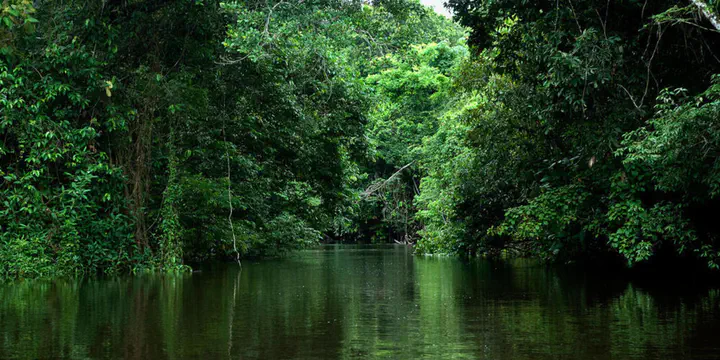Brazil's Bold Leap :Lula's Pledge to Revitalize the Amazon and Combat Climate Change
 Image credit: [worldwildlife.org][https://www.worldwildlife.org]
Image credit: [worldwildlife.org][https://www.worldwildlife.org]
In an inspiring move that resonates with hope for environmentalists and indigenous communities alike, Brazilian President Luís Inácio Lula da Silva has taken a firm stance against the deforestation crisis that has plagued the Amazon rainforest. Standing alongside indigenous leaders and key members of his government, Lula has vowed to mend the years of neglect the Amazon suffered under the administration of his predecessor, Jair Bolsonaro.
Under Bolsonaro’s tenure, the Amazon witnessed a staggering 75% increase in deforestation rates compared to the previous decade, marking a dark period for one of the planet’s most vital ecological treasures. The ramifications of this neglect stretch far beyond the borders of Brazil, impacting global climate balance and contributing to the ever-escalating issue of global warming.
Recognizing the Amazon’s pivotal role in regulating the Earth’s climate, Lula’s administration has relaunched an ambitious plan of action against deforestation, drawing on successful strategies from his previous terms. These past initiatives saw the most significant reduction in Amazon deforestation rates in history, offering a beacon of hope for the potential impact of renewed efforts.
Central to Lula’s environmental policy is the fight against deforestation, which he has positioned as a cornerstone of Brazil’s contribution to the global battle against climate change. The Amazon rainforest, often dubbed the “lungs of the Earth,” plays a crucial role in carbon absorption, making its protection essential for mitigating global warming.
From Sao Paulo comes encouraging news: deforestation in Brazil’s Amazon rainforest fell 30% in February from a year earlier, according to government data. This significant decrease, as reported by the space research agency INPE, indicates that 226 square kilometers of the rainforest were cleared last month—a noteworthy reduction from the record 322 square kilometers deforested in the same period last year. Although these figures remain above the nine-year average for February, the downward trend in deforestation under Lula’s government marks a pivotal shift towards fulfilling the pledge to end illegal deforestation by 2030.
However, interpreting this data requires caution, particularly due to the heavy cloud cover over the rainforest early in the year, which can affect satellite readings. Additionally, a sharp spike in wildfires in the northernmost state of Roraima, threatening Indigenous communities in the Yanomami territory, underscores the complex challenges still facing Brazil’s environmental efforts.
Moreover, concerns are rising over the deforestation of the Cerrado, one of the world’s most biodiverse savannas. WWF-Brasil’s strategy director Mariana Napolitano notes a drop in Amazon deforestation alongside an increase in Cerrado deforestation, highlighting the need for comprehensive environmental strategies that encompass all of Brazil’s unique ecosystems.
Lula’s comprehensive strategy includes a multi-faceted approach to protect the Amazon and its indigenous territories from illegal mining, logging, hunting, and fishing. Leveraging modern technology, such as intelligence and satellite imagery, the plan aims to monitor and track criminal activities threatening the forest’s integrity. Additionally, the introduction of economic incentives for conservation and a tracing system for products exported from the Amazon will ensure they are not sourced from deforested areas.
The road ahead is challenging, with climate scientists warning of the need for extensive reforestation efforts to protect the Amazon from reaching a tipping point. Yet, the early successes of Lula’s renewed efforts offer a glimmer of hope. As Brazil strides towards its goal of ending deforestation by 2030, the nation not only works to restore the health of its own precious rainforest but also contributes significantly to the global fight against climate change.
As the world watches, Lula’s administration embarks on this ambitious journey, the success of which could prove instrumental in the global effort to tackle climate change. The revitalization of the Amazon and the protection of its invaluable biodiversity represent not just a national commitment but a vital contribution to the health and stability of our planet.
Reference: Brazilian Ministry of the Environment WWF-Brasil Amazon Environmental Research Institute (IPAM) Reuters. (2023). Deforestation in Brazil’s Amazon rainforest falls 30% in February. Retrieved March 8, 2024